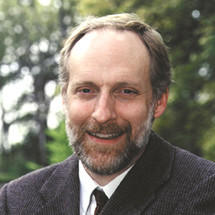Kugler ’79 studies Dead Sea Scrolls
Open gallery

Since stumbling across the Dead Sea Scrolls as a graduate student in the early 1990s, Robert Kugler ’79 has ridden the extraordinary texts to recognition. A gifted linguist and prodigious author, Kugler is at the forefront of a second generation of biblical scholars who are mining the ancient manuscripts for insight into the shared roots of Judaism and Christianity.
Although the scrolls were discovered in the caves at Qumran between 1947 and 1956, many were not made available to scholars until the early 1990s. Their release coincided with Kugler’s doctoral studies in Christianity and Judaism in antiquity at the University of Notre Dame.
“I came into that research at just the right time,” he says.
Kugler, associate professor of religious studies at Gonzaga University, has penned books, delivered lectures, presented papers and translated sections of the texts. He’s conversant in three modern languages and is literate in three ancient tongues. He also just finished a six-year term as cochair of the Qumran section of the Society of Biblical Literature.
“Scholars have long studied interpretive works among early Jews and Christians, that is, texts that expand and rework well-known biblical stories,” Kugler says. “We call these ‘Rewritten Bible’ texts.”
What interests Kugler is to speculate on what happened to the religious imagination of the earliest recipients of those interpretive texts.
“But to do that, we need not only the texts but also a good idea of the setting within which they were received. What were the social, economic, cultural and religious expectations of the recipients of these works? If we have answers to those questions, we can reliably speculate on how the group’s expectations would have been reshaped by experiencing texts that interpret the Hebrew scriptures.”
It turns out that the Dead Sea Scrolls contain many Rewritten Bible texts alongside a wealth of biblical texts (the Hebrew scriptures), according to Kugler.
“Thus, we can be certain that the people of the scrolls were recipients of Rewritten Bible texts. We also know a great deal from the scrolls and the archaeology of the Qumran site about the social and historical context in which the Rewritten Bible scrolls were received.
“For those reasons,” he says, “the scrolls present the ideal circumstances for reliably contemplating the effect on ancient recipients of receiving interpretive works.”
Kugler hopes to eventually take the lessons learned from this narrow application of a “historically oriented reader-response” approach to Rewritten Bible texts and apply it to the study of other Jewish and Christian literature of antiquity, including the New Testament.
“The practical payoff comes when we learn from the ancients how to craft effective interpretive texts and traditions. Modern interpreters have too long neglected the riches offered by such ancient interpreters.”
The son of a Lutheran pastor, Kugler says he was “always intrigued by the Bible as a document of history and for faith.” Nevertheless, he expected to major in psychology at Lewis & Clark, a school he chose for its size, intellectual vigor and liberal arts curriculum.
Kugler got hooked on religious studies during his junior year in Munich, Germany, and credits Richard L. Rohrbaugh, Paul S. Wright Professor of Christian Studies, with deepening this interest upon his return to campus.
“Rohrbaugh was always opening up new vistas about the Bible and its social world,” Kugler remembers.
The duo recently collaborated on research into the social setting of an ancient manuscript.
Kugler returned to Lewis & Clark in April to be initiated into the College’s chapter of Phi Beta Kappa, the nation’s oldest and most prestigious undergraduate honors organization. The visit brought back warm memories for Kugler, who says that as a student, he thoroughly enjoyed Lewis & Clark’s academic challenges.
He graduated with honors in only three years and spent the next three years attending a Chicago seminary and serving as a pastoral intern in southern Illinois. An “experimental” year at law school led him to Pacific Lutheran Theological Seminary in Berkeley, Calif., where he completed his master of divinity degree.
After ministering to parishioners in Spokane, Wash., for five years, Kugler made good on a promise to himself to earn his doctorate. It was during his third year of doctoral studies at Notre Dame that he began to study the Dead Sea Scrolls.
Eight years and many papers, presentations and scholarly reviews later, Kugler has “made a name for himself” as a scrolls scholar, says Patrick Hartin, professor of religious studies at Gonzaga.
In 1999, the university cited Kugler’s “truly amazing” record of scholarly productivity by awarding him the Great Teachers’ Program Award for Distinguished Scholarship.
Currently, Kugler is teaming with his colleague Hartin to write an introduction to the Bible. He has just published his fourth book, Testaments of the Twelve Patriarchs.
“To achieve what he’s achieved in such a short span is a great tribute,” Hartin marvels. “I think we’re going to hear a lot more from him in the future.”
—by Dan Sadowsky
More L&C Magazine Stories
Lewis & Clark Magazine is located in McAfee on the Undergraduate Campus.
MSC: 19
email magazine@lclark.edu
voice 503-768-7970
fax 503-768-7969
The L&C Magazine staff welcomes letters and emails from readers about topics covered in the magazine. Correspondence must include your name and location and may be edited.
Lewis & Clark Magazine
Lewis & Clark
615 S. Palatine Hill Road MSC 19
Portland OR 97219

